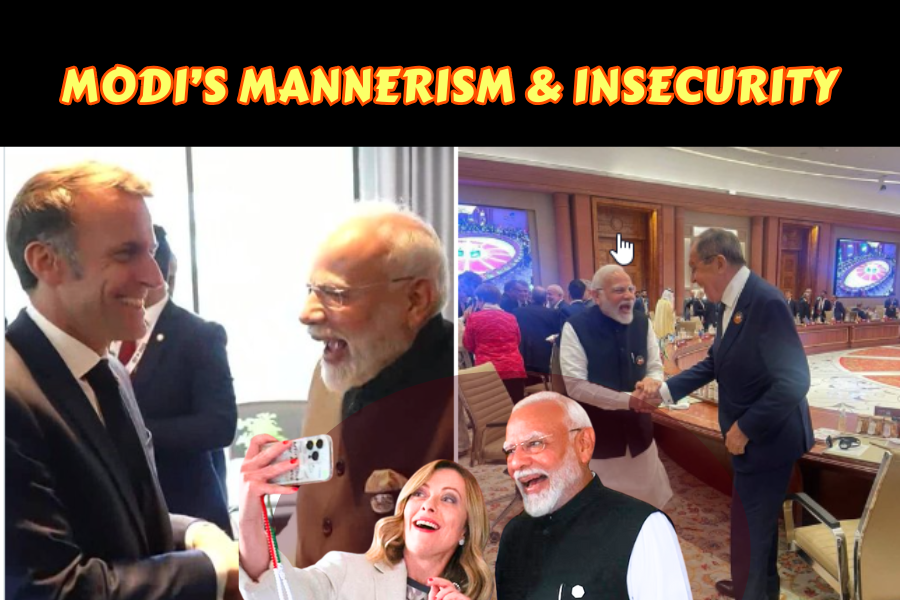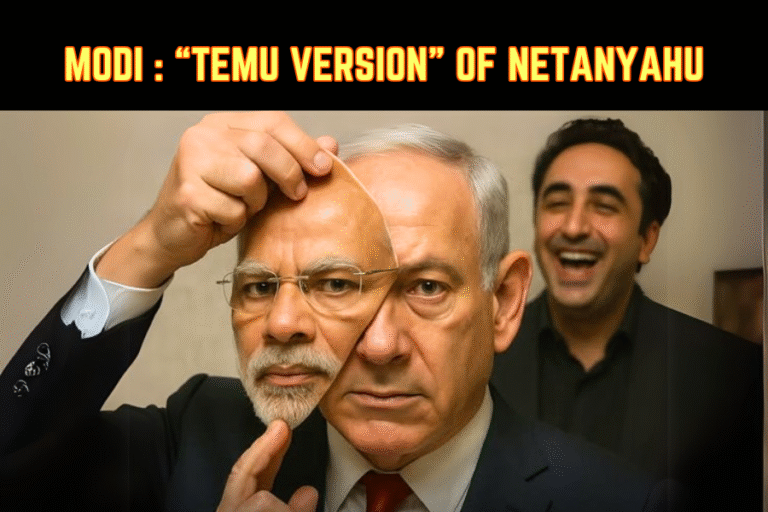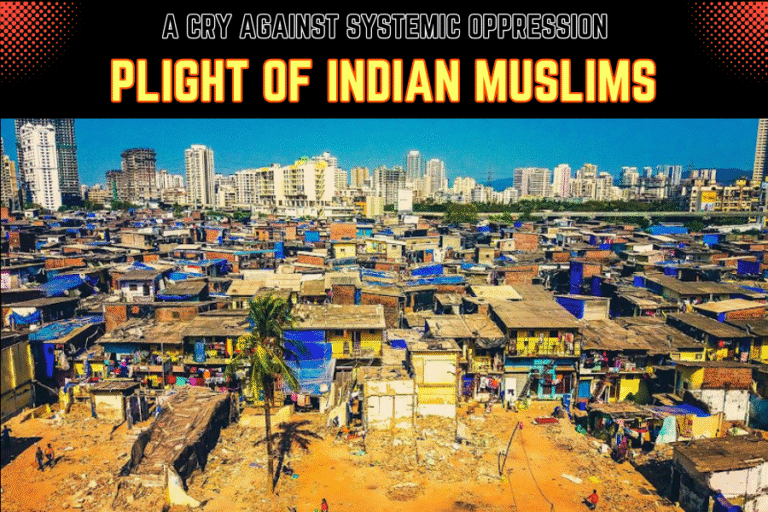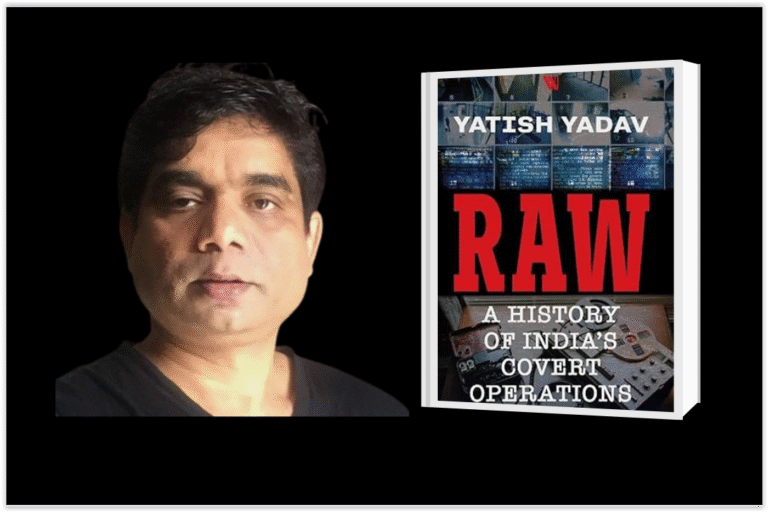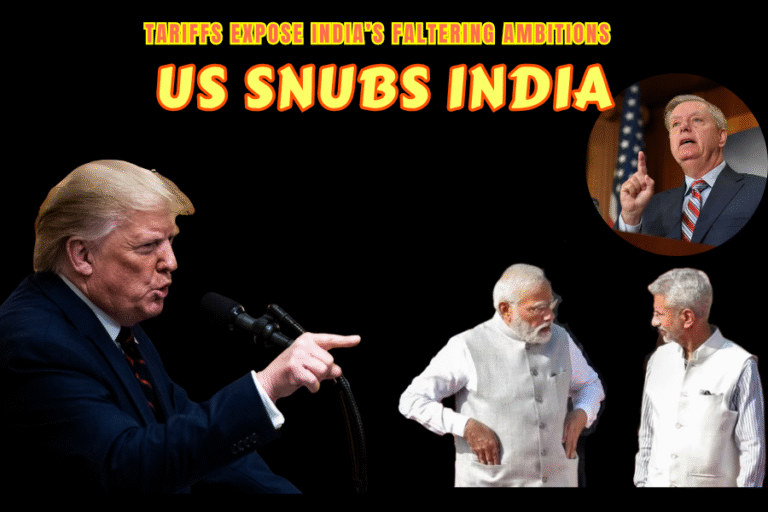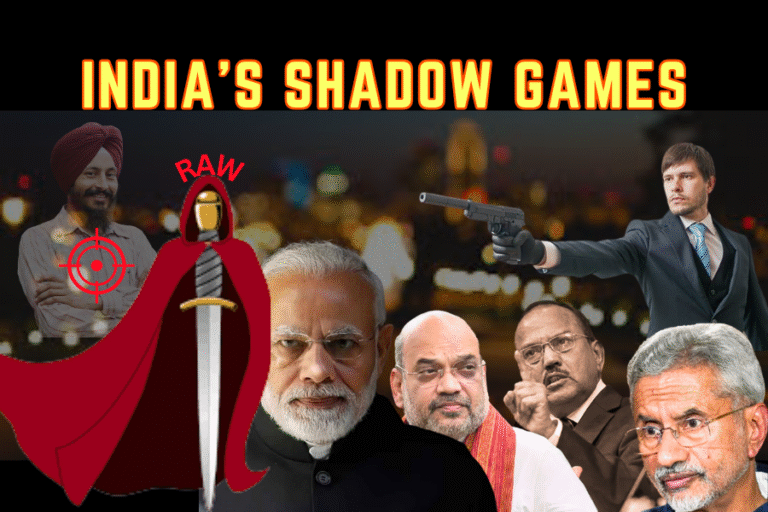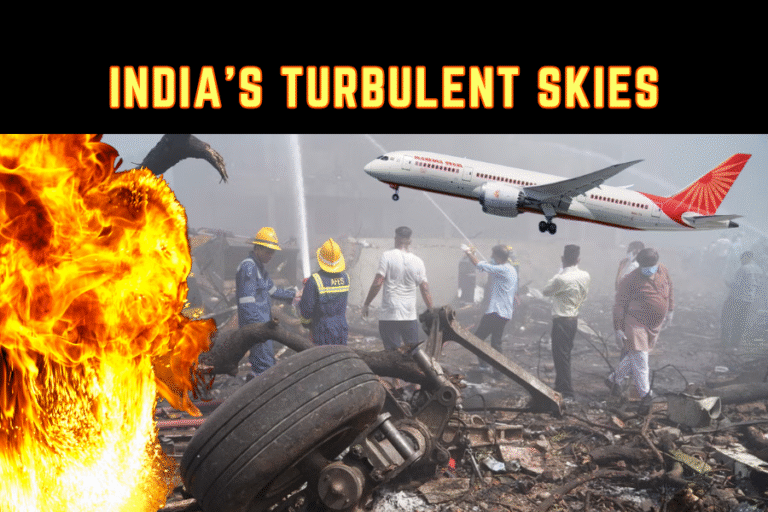(By Khalid Masood)
Narendra Modi, India’s Prime Minister since 2014, has cultivated an image of a decisive, larger-than-life leader, bolstered by the Bharatiya Janata Party (BJP) and the Rashtriya Swayamsevak Sangh (RSS). Yet, his diplomatic engagements and public interviews often reveal a troubling lack of refinement, exposing insecurities that undermine his global stature. From awkward laughter with foreign dignitaries to outlandish claims in interviews, Modi’s behavior—described on social media as clownish—reflects an inferiority complex that clashes with the sophistication expected of a world leader. This article analyzes Modi’s personality through his diplomatic and interview blunders, drawing on web sources and recent events in 2025. It examines how his lack of mannerism, rooted in insecurity, diminishes India’s credibility and fuels regional tensions, with a particular focus on his ill-informed remarks about the Balakot airstrike, his Lahore visit, and other gaffes.
1. The Facade of Confidence: Modi’s Cult of Personality
Modi’s journey from a tea-seller’s son in Vadnagar, Gujarat, to India’s longest-serving non-Congress prime minister is a narrative he leverages to project resilience and ambition. A 2024 survey rated his self-motivation and networking skills at 90%, reflecting his ability to build a personality cult through state propaganda, including stadium naming and COVID-19 vaccination certificates bearing his image. Harish Khare, in a 2024 article, noted that this cult, funded by taxpayer money, shields Modi from criticism, portraying him as India’s indispensable leader.
However, this carefully curated image falters in international and media settings. Modi’s limited English fluency, while not a flaw in itself, becomes a liability when paired with exaggerated gestures or uninformed statements that betray insecurity. Posts on social media from June 2025 describe Modi laughing hysterically or nodding excessively with foreign leaders, misreading cues and appearing unpolished. His interview blunders, from scientifically absurd claims to diplomatic insensitivity, further expose a leader struggling to reconcile his domestic dominance with global expectations, a contrast starkly evident against Pakistan’s more restrained diplomacy.
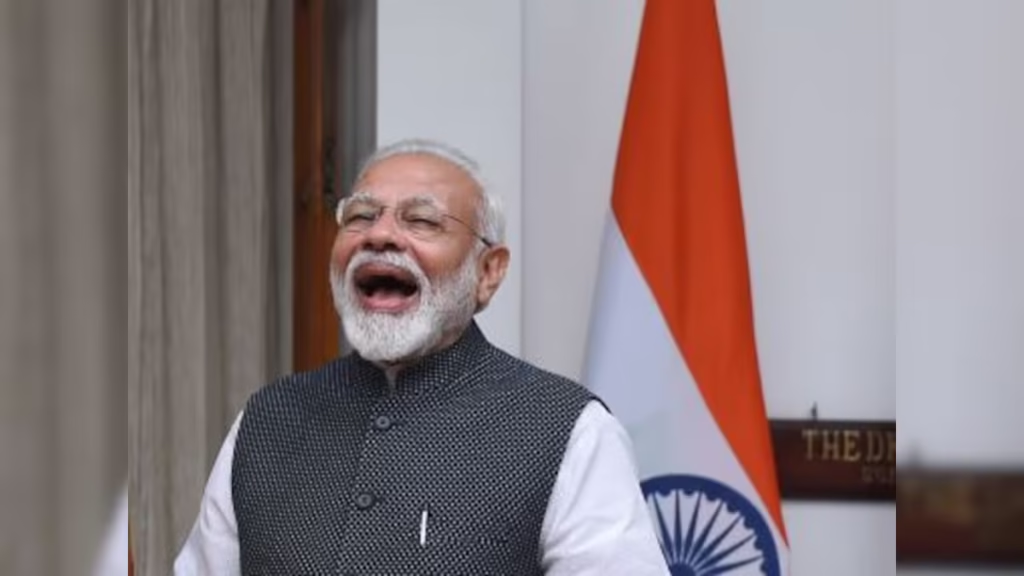
2. Diplomatic Blunders: A Pattern of Overcompensation
Modi’s diplomatic interactions are marked by a lack of finesse that undermines India’s global aspirations. At the June 2025 G7 Summit in Kananaskis, Canada, his overly familiar laughter with U.S. President Donald Trump was mocked on X, noting he “laughed without understanding a word.” This echoes a 2021 incident with then-President Joe Biden, where Modi’s exaggerated chuckles became a viral meme, portraying him as a parvenu desperate to belong. In 2015, during a UK visit, The Guardian criticized his “uncritical embrace” by global leaders, juxtaposed against his domestic record of religious divisiveness, suggesting an over-eagerness to charm rooted in insecurity.
His 2015 visit to Lahore, invited by then-Pakistani Prime Minister Nawaz Sharif for his granddaughter’s wedding, is a case study in diplomatic tactlessness. Modi later boasted in a 2016 interview, “I have visited Lahore without a visa and checked Pakistan’s nuclear arsenal,” a claim that mocked Sharif’s hospitality and falsely implied unauthorized access to sensitive sites. This not only strained India-Pakistan ties but also exposed Modi’s tendency to embellish for domestic applause, a move Pakistani diplomats like Maleeha Lodhi condemned as “crass and undignified” on X in 2025.
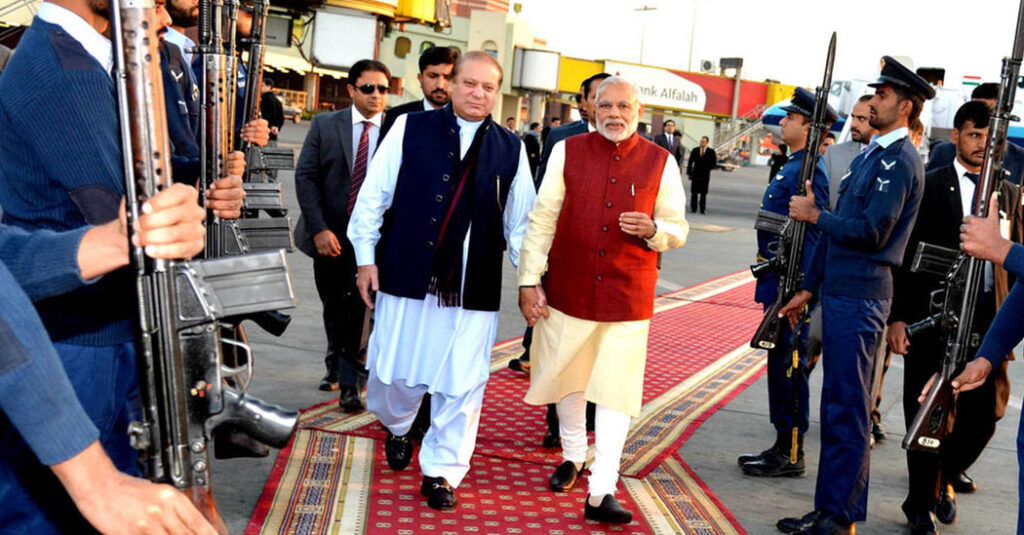
3. Interview Gaffes: Exposing Ignorance and Arrogance
Modi’s interviews, intended to showcase leadership, often reveal a lack of depth and decorum, amplifying his insecurities. Three notable blunders stand out:
- Balakot Airstrike Cloud Theory (2019): In a May 2019 interview with News18, Modi claimed he approved the Balakot airstrike despite cloudy weather, believing “clouds would hide Indian Air Force jets from Pakistani radars.” This scientifically baseless assertion drew ridicule from defence experts and social media. Air Marshal Harish Masand (retd.) clarified that clouds do not shield aircraft from modern radars, which operate effectively regardless of weather. Social Media Posts mocked Modi’s “clouded mind,” citing experts debunking the claim. The gaffe, resurfaced in 2025 underscored Modi’s limited grasp of military technology, damaging his credibility during the 2025 India-Pakistan conflict.
- Lahore Visit and Nuclear Arsenal Claim (2016): Modi’s 2016 remark about visiting Lahore without a visa and “checking” Pakistan’s nuclear arsenal, made during a public speech, was a diplomatic disaster. Invited by Nawaz Sharif for a personal occasion, Modi’s boast trivialized a gesture of goodwill, portraying it as a covert mission. Pakistani officials, including Foreign Minister Ishaq Dar in a statement, called it “a gross misrepresentation,” highlighting Modi’s lack of diplomatic etiquette. This incident, recalled on social media in 2025, fueled perceptions of Modi as untrustworthy in regional diplomacy.
- Digital Camera and Email in the 1980s (2019): In a 2019 interview with Network18, Modi claimed he used a digital camera and sent emails in the 1980s as Gujarat’s RSS chief, despite digital cameras and widespread email not existing until the 1990s. Social Media users in 2024 cited this as evidence of Modi’s “mental giant” myth, calling it “embarrassing exaggeration.” This blunder, widely debunked online, reinforced perceptions of Modi’s tendency to fabricate achievements.
These gaffes, rooted in a need to inflate his expertise, contrast with Pakistan’s leaders like Shehbaz Sharif, who, in 2025, maintained measured responses during the India-Pakistan conflict, earning international praise for restraint.
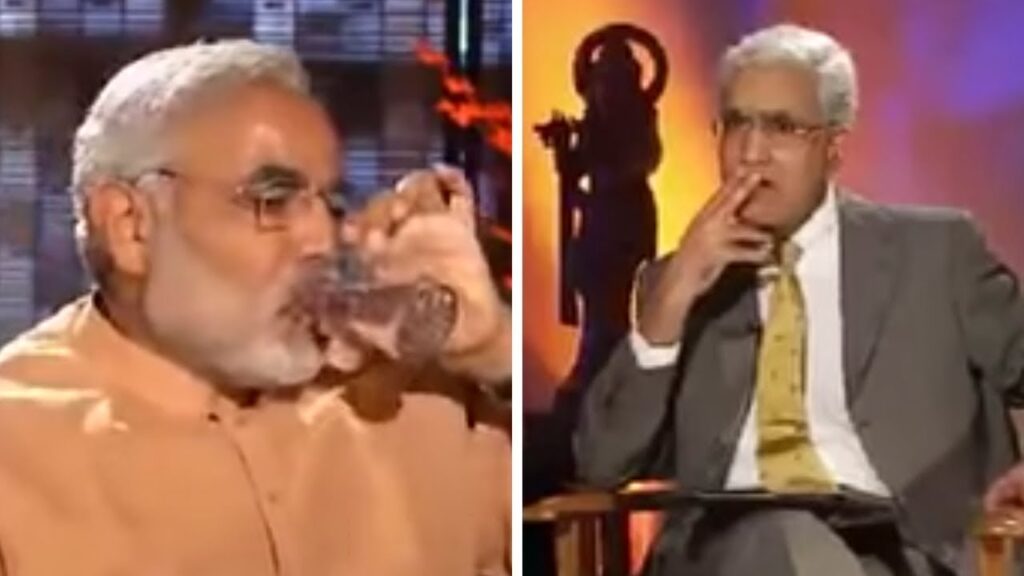
4. Psychological Roots: Insecurity and Narcissism
Modi’s blunders stem from a personality marked by insecurity and narcissism, as analyzed by Arun Shourie in 2018, who described Modi’s need for constant validation as a “dark triad” trait. A 2024 ResearchGate study rated Modi’s empathy and transparency below 80%, indicating a disconnect from others’ perspectives, critical in diplomacy. His RSS upbringing, noted in a 2024 Conversation article, fostered a parochial worldview, with a high in-group bias that makes him wary of outsiders. This insecurity drives his theatrical gestures—hysterical laughter, embroidered suits, or grandiose claims—to mask his discomfort in global arenas.
The 2002 Gujarat riots, which led to Western visa bans, likely deepened this complex, as Ramachandra Guha’s 2024 analysis suggests, noting Modi’s “undiluted self-love” in renaming Ahmedabad’s stadium after himself in 2021. Such actions, while bolstering his domestic base, alienate international counterparts who value humility, as seen in Nigeria’s 2024 honors ceremony, where Modi’s awkward speech drew X criticism for lacking grace.
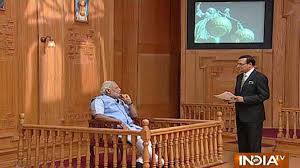
5. Regional Impact: Straining India-Pakistan Ties
Modi’s lack of mannerism and interview gaffes have exacerbated India-Pakistan tensions, particularly during the 2025 conflict sparked by the Pahalgam attack. His bellicose rhetoric, claiming India “paused” its military action and would strike again, lacked the nuance needed for de-escalation, unlike Pakistan’s diplomatic outreach to Russia and Saudi Arabia. His Balakot cloud claim resurfaced in 2025 X posts, undermining India’s military narrative during Operation Sindoor, where Pakistan claimed to down six Indian jets. Modi’s Lahore remark further eroded trust, contrasting with Pakistan’s ceasefire commitment, praised by U.S. mediators.
6. Global Consequences: A Tarnished Image
Modi’s international honors, from Russia’s Order of St. Andrew to Mauritius’s Star and Key in 2025, are overshadowed by his unrefined conduct. A 2024 Bloomberg article noted his personality cult’s vulnerability post-election losses, yet Modi persists with grandiose displays. His strategic acumen, praised in a 2023 NLP Limited analysis, is undermined by a lack of empathy and cultural fluency, as seen in his 2025 G7 antics and interview blunders. Pakistan’s diplomats, like Munir Akram, capitalize on this, projecting restraint and professionalism.
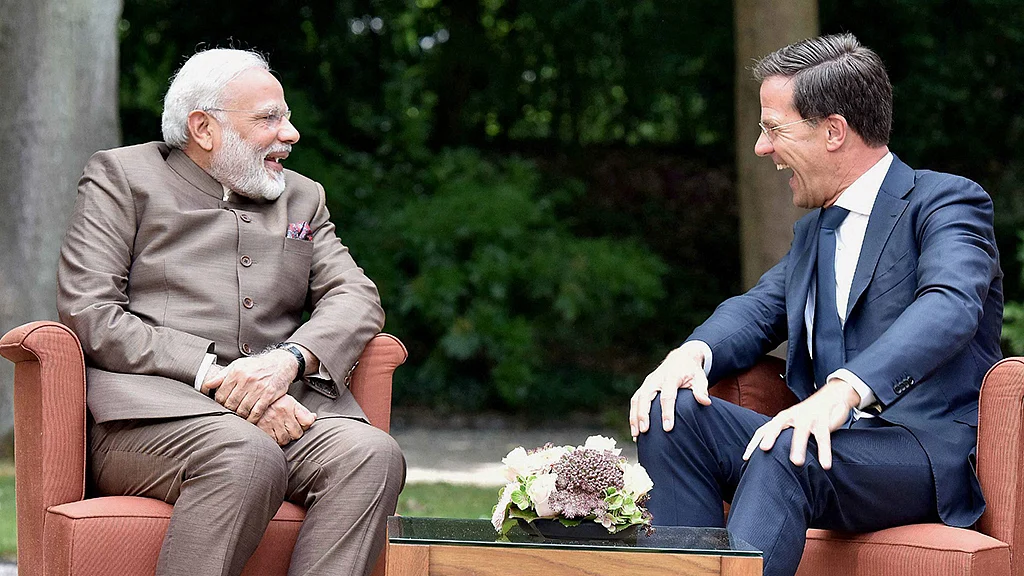
7. Conclusion
Narendra Modi’s lack of mannerism and interview missteps—claiming clouds hide jets, boasting about Lahore’s nuclear arsenal, and fabricating 1980s digital feats—reveal an insecure leader whose blunders weaken India’s global standing. His hysterical laughter and exaggerated claims, driven by a narcissistic need for validation, contrast with Pakistan’s poised diplomacy, evident in its 2025 ceasefire commitment. As Modi’s cult frays, his diplomatic and media gaffes embolden Pakistan’s strategic advantage, underscoring the need for India to embrace a leader with grace and substance.

